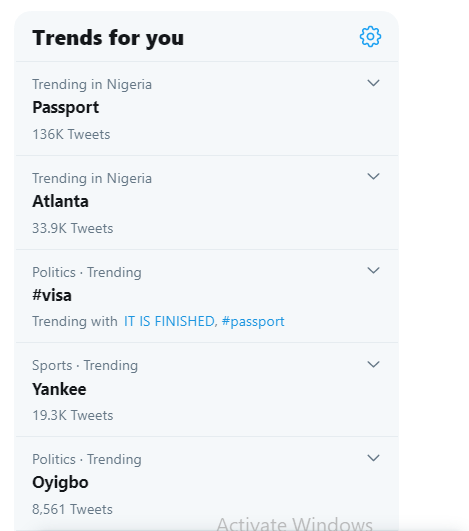Government
Passport, Visa Trend as Nigerian Youths Look to Move Out En masse Following Disappointing Presidential Speech
Passport and Visa Trend on Twitter Following Disappointing Presidential Speech
Nigerian youths have started looking for a way to exit the country following a disappointing Presidential speech after security operatives opened fire on peaceful protesters on October 20, 2020 at Lekki Toll Gate in Lagos, Nigeria.
The youths, who have been protesting and demanding an end to the now-disbanded Special Anti-Robbery Squad (SARS) unit of the Nigerian Police Force (NPF), had assembled at Lekki Toll Gate on October 20, 2020 to sustain their protest before the commencement of a 24-hour curfew declared by the Governor of Lagos State, Babajide Sanwo-Olu.
However, shortly after they sang the national anthem, they were attacked by security operatives in one of the goriest scenes ever witnessed in the country. Despite calls for prosecution of perpetrators by both international and local civil rights organisations, the Federal Government has denied the occurrence even when Sanwo-Olu had earlier said forces beyond his control had made dark notes of history in the state.
This coupled with President Muhammadu Buhari’s refusal to acknowledge the killings and occurrence in his speech on Thursday, negatively affected the youths that for the first time went all out to demand a change in one voice.
Feeling dejected with the situation and most importantly hopeless about the future, they were forced to start seeking an exit from an uncertain future to a more predictable economy govern by sane people.
Since the failed presidential speech, Passport and Visa have been trending on Twitter as Nigerian youths now shift their focus to traveling out of Nigeria, a nation expected to plunge into the second economic recession in four years in the third quarter under President Muhammadu Buhari.
The inflation rate increased by 13.71 percent in September with the nation’s unemployment rate at 27.1 percent or 21.8 million amid rising economic uncertainties, weak foreign reserves and a currency that has been devalued twice this year.